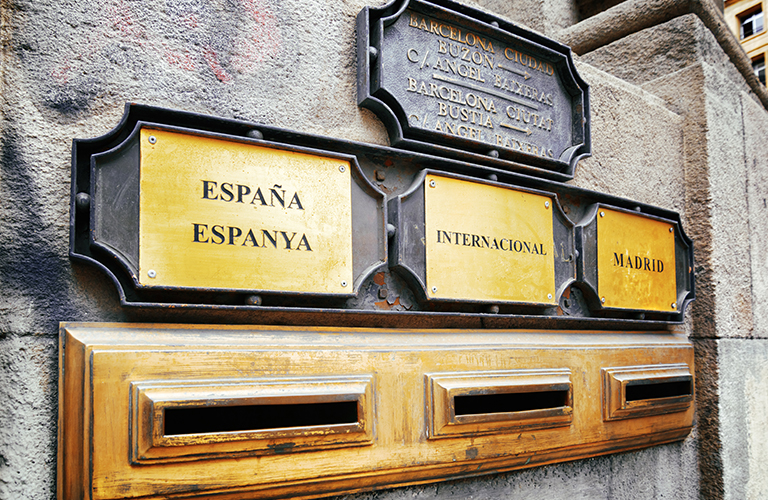
The United States Supreme Court recently ruled in Water Splash, Inc. v. Menon[2] that Article 10(a) of the Convention on the Service Abroad of Judicial and Extrajudicial Documents in Civil or Commercial Matters[3] (“Hague Service Convention”) does not prohibit service of process by mail.
The Hague Service Convention is an international treaty signed by 72 countries, including the U.S.[4] It establishes a uniform mechanism for serving judicial documents on parties in other member countries and streamlines the service process so the documents reach recipients in a timely manner.[5]
The Water Splash decision resolved a long-standing split among federal appellate courts concerning whether Article 10(a) of the Hague Service Convention permits service of process by mail.[6] Courts in the Second and Ninth Circuits had found that Article 10(a) allows service of judicial documents by mail.[7] In contrast, courts in the Fifth and Eighth Circuits had found that it does not permit service by mail.[8]
The Supreme Court unanimously sided with the courts that allowed service of process by mail. Specifically, in Water Splash, the Court held that the Hague Service Convention permits service of process by mail so long as (1) the receiving jurisdiction has not objected to service by mail and (2) the law of the jurisdiction where the lawsuit is pending authorizes mail service.[9]
The Supreme Court analyzed the text of Article 10(a), which states, “[p]rovided the State of destination does not object, the present Convention shall not interfere with … the freedom to send judicial documents, by postal channels, directly to persons abroad,” and compared it to the text of Articles 10(b) and 10(c) which use the language “to effect service of judicial documents.” [10] The Court reasoned that “send” is a very broad term, and there is no apparent reason why it would exclude the transmission of documents for the purpose of service.[11]
The Court also noted that since the scope of the Convention is limited to service of documents abroad, it would be quite strange if Article 10(a) concerned something other than service of documents.[12] Further, the Court reasoned that if the drafters of the Hague Service Convention had wished to limit Article 10(a) to post-answer judicial documents, they presumably would have said so.[13]
Additionally, the Court noted that the French version of the Convention, which is equally authentic to the English version, uses the word “adresser,” which is commonly interpreted and understood to mean service or notice.[14] Finally, the Court looked to extratextual sources, such as the Convention’s drafting history, the Executive Branch’s interpretation of the Convention, and the views of other signatories to the Convention, all of which support the position that the Convention allows service by mail.[15]
While holding that Article 10(a) of the Hague Service Convention does not prohibit service by mail, it is important to note that the Water Splash opinion does not hold that the Convention affirmatively authorizes service by mail.[16] Rather, as noted above, the Water Splash opinion holds that service by mail is permissible, as long as the receiving state has not objected and if mail service is authorized under applicable law.[17]
The Supreme Court’s ruling in Water Splash will make it easier for litigants bringing claims against foreign defendants in U.S. Courts to effectuate service in countries that have not filed an objection to service by mail under the Hague Service Convention. Plaintiffs should consult the Hague Service Convention’s website to determine whether the defendant’s foreign country of residence is a party to the Convention and whether it has objected to service of process by mail.[18] Additionally, plaintiffs should confirm whether the local governing law in the U.S. jurisdiction where suit is pending permits service by mail.
This blog is intended to inform clients and other interested parties about legal matters of current interest and is not intended as legal advice. For further information on the matter discussed in this blog, contact Marcia M. Ernst or any attorney in the Litigation/Trial Practice of Smith, Gambrell & Russell, LLP.
[1] The author acknowledges Elizabeth A. Penland who assisted with the research and writing for this blog post. Ms. Penland is a law student at the University of Georgia School of Law and was a summer associate with Smith, Gambrell & Russell, LLP.
[2] 137 S. Ct. 1504 (2017).
[3] Convention on the Service Abroad of Judicial and Extrajudicial Documents in Civil or Commercial Matters, Nov. 15, 1965 (Hague Service Convention), 20 U.S.T. 361, T.I.A.S. No. 6638. Full text available at https://www.hcch.net/en/instruments/conventions/full-text/?cid=17.
[4] Hague Conference on Private Int’l Law, Status Table for the Convention of 15 Nov. 1965 on the Service Abroad of Judicial and Extrajudicial Documents in Civil or Commercial Matters, https://www.hcch.net/en/instruments/conventions/status-table/?cid=17.
[5] Hague Service Convention, supra note 3, preamble.
[6] See 137 S. Ct. at 1508.
[7] See Ackerman v. Levine, 788 F.2d 830 (2nd Cir. 1986); Brockmeyer v. May, 383 F.3d 798 (9th Cir. 2004).
[8] See Nuovo Pignone, SpA v. Storman Asia M/V, 310 F.3d 374 (5th Cir. 2002); Bankston v. Toyota Motor Corp., 889 F.2d 172 (8th Cir. 1989).
[9] 37 S. Ct. at 1513.
[10] Id. at 1508-09.
[11] Id. at 1509.
[12] Id.
[13] Id. at 1509-10.
[14] Id. at 1511.
[15] Id. at 1511-12.
[16] Id. at 1513.
[17] Id.
[18] Supra note 4 and https://assets.hcch.net/docs/6365f76b-22b3-4bac-82ea-395bf75b2254.pdf.

